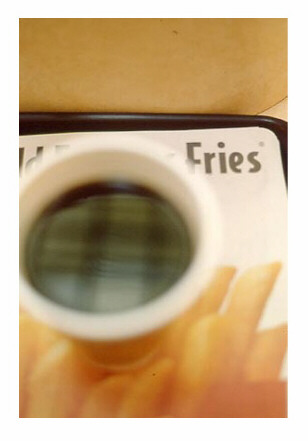 This was transcending and including: watching the billions of forces at work in the
complexity/chaos of the motes of dust; seeing and feeling the beauty of the currents and the reflection
of the light; being a little grossed out by the dead skin that makes up most dust; recognizing, yes, the
cliche of watching motes of dust in a sunbeam, but recognizing also the beauty beyond the cliche;
and seeing all the cultural factors that determine the cliche and avoid it. All of Wilber's quadrants (I, we, it, its)
were present. The universe was in a few grains of sand. And no fuzzy thinking was required.
This was transcending and including: watching the billions of forces at work in the
complexity/chaos of the motes of dust; seeing and feeling the beauty of the currents and the reflection
of the light; being a little grossed out by the dead skin that makes up most dust; recognizing, yes, the
cliche of watching motes of dust in a sunbeam, but recognizing also the beauty beyond the cliche;
and seeing all the cultural factors that determine the cliche and avoid it. All of Wilber's quadrants (I, we, it, its)
were present. The universe was in a few grains of sand. And no fuzzy thinking was required.
There is a sort of neo-Pascalian wager that colors my contemplative practice these days. The contemplative path is a series of self-fulfilling prophecies. You do become kinder, you do become more open. The world does not change, but your attitude toward it does. Really, there is just this - just the same world that is in front of everyone else. But, without being sickly sweet, it can be seen and felt as the living skin of God. Both the flatland view and the mystical view seem internally consistent on a rational level (although flatland has trouble explaining the certainty associated with direct mystical experience, a certainty as sure and as clear as your perception of your hands or feet right now; and meditation allows greater cognitive experience of rationally-verifiable truths). So why not choose the option that leads to expanded compassion, love, and peace?
The fear that arises with Pascal's wager is that it is actually a choice -- with consequences.
On the one hand, I can see the world from the good, humanistic, skeptical, liberal perspective - what, for shorthand, I think of as the New Yorker view. In this world, certain things are clear. The great variety of human experience, from ballet shoes to the terrible complexities of Afghanistan, is a wonderful, rich, dazzling symphony. Culture is essential, beautiful, and real; people like Ken Wilber are weirdos. Religion, for its part, is sometimes beautiful, sometimes horrible. Meditation is good to relax, as part of a complete, humanistic life, but anything more than that is closely related to delusion. Restaurants, operas, political debates, the joys of family and friends -- all of this is accessible, to read, experience, even possibly to contribute a verse. It is all part of a world that, if you have the right education and political liberalism and privileges of class, you have an invitation to enjoy.
 From the perspective of mochin d'gadlut (the "expanded mind"), on the other hand, all of these
worlds are, essentially, manifestations of the One. They exist, they are beautiful, but the reality is that they
are just ripples on the ocean. In theory, all the beauty remains - but it's not so easy.
From the perspective of mochin d'gadlut (the "expanded mind"), on the other hand, all of these
worlds are, essentially, manifestations of the One. They exist, they are beautiful, but the reality is that they
are just ripples on the ocean. In theory, all the beauty remains - but it's not so easy.



Harvard Death Fugue
On the Exploitation of Bruno Schulz
James Russell
The Jews of Istanbul
Sara Liss
The Truth about the Rosenbergs
Joel Stanley
Thinking despite Doubt, Feeling despite Truth
Jay Michaelson
Two Rituals
Joshua Bolton
Hepster Advice
Jennifer Blowdryer
Josh Goes to the Hospital
Josh Ring
Archive
Our 400 Back Pages
Saddies
David Stromberg
Zeek in Print
Winter 03 issue now on sale
About Zeek
Events
Contact Us
Links
From previous issues:
Miracles
Abraham Mezrich
What the World is...
Jay Michaelson
The Gifts of the German Jews
Michael Shurkin